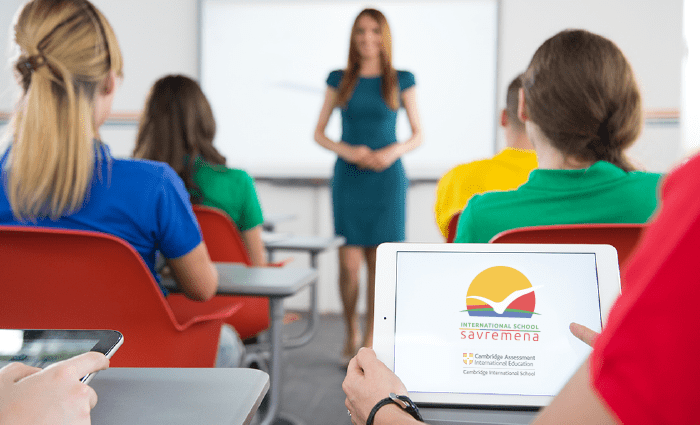What are the characteristics of Savremena’s teachers?
Our teachers put the education of their students first. They make sure that the highest possible standards are upheld in their work and conduct. They are honest and act with integrity. As distinguished experts in the subject matter they teach they employ sound and objective judgement, and continuously seek to build good professional relationships and to cooperate with their colleagues and parents in order to always act in the best interest of their students.

TEACHING
A teacher must:
1. Have high expectations which inspire, motivate and challenge students:
- Provide a safe and stimulating environment for students, rooted in a sense of mutual respect;
- Set the ultimate objectives that must be achieved and challenge each and every student to help them grow in the process of achieving their goals;
- Embody the behaviour and values that the students are expected to uphold and as their role model always foster a positive work attitude.
2. Strive to help their students progress and achieve good results:
- Ensure that students achieve the set objectives, excellent results and continuously improve;
- Be aware of the capabilities and the body of knowledge their students possess and plan their teaching materials accordingly;
- Gear students towards thinking about the success they achieved and their future needs;
- Possess and demonstrate their knowledge, understanding and ability to implement various teaching methods and know the effects the individual methods can have on teaching efficiency;
- Encourage students to act responsibly and conscientiously toward their academic obligations.
3. Demonstrate good subject and curriculum knowledge:
- Know the subject matter they teach and the relevant curriculum areas well, foster and maintain student interest in their subject, and act to resolve any misunderstandings;
- Keep track of the developments and the changes that occur within their field of expertise;
- Promote high literacy and eloquence standards and demonstrate and insist on the correct usage of the standard Serbian language and/or the standard English language, regardless of the subject they teach;
4. Plan and teach well designed lessons:
- Impart knowledge and efficiently use the limited amount of time they have in class;
- Promote the love of learning and encourage the intellectual curiosity of their students;
- Give out homework and plan other extracurricular activities for students in order to strengthen and expand their knowledge and understanding of the materials that were taught;
- Maintain a systematic and methodical approach to teaching;
- Make the curriculum more interesting within the relevant subject areas.
5. Adapt their teaching to suit the talents and the needs of each student:
- Know when and how to differentiate appropriately, again using the approaches which allow students to be taught efficiently;
- Understand the range of factors that can interfere with and obstruct the learning process and know how best to overcome those obstacles;
- Be aware of the physical, social and intellectual development of students and know how to adapt their teaching to the different stages of student development;
- Have a clear understanding of the needs of all students, including those that have special educational needs (due to learning difficulties and/or disabilities), gifted students, those with Serbian as a second language, and students with physical disabilities, and use and evaluate the teaching methods that would engage and support them.
6. Carry out precise and productive assessments:
- Know how to assess students in their subject and the relevant curriculum areas, in accordance with the regulations stipulated by the law;
- Use formative and summative assessment in order to enable student progress;
- Use relevant data to monitor student progress, set objectives and plan future lessons;
- Give students regular feedback, both orally and through accurate assessment and encourage students to respond to the feedback.
7. Enforce the code of conduct to ensure a healthy and safe learning environment:
- Have clearly defined rules and routines for in-classroom behaviour and promote good behaviour in and out of the school in accordance with the relevant policies adopted by the school;
- Enforce high student behaviour standards and know how to establish a disciplinary model that implements a large number of firm and consistent strategies including praising, sanctioning and rewarding different kinds of student behaviour;
- Manage classes successfully and use the appropriate approach and methods in order to respond to student needs in the best possible way and engage and motivate them;
- Maintain good relationships with students, but at the same time use their authority and act decisively when necessary.
8. Fulfil a large number of professional responsibilities:
- Make a positive contribution to the life and the spirit of the school;
- Develop efficient professional relationships with colleagues, knowing when and how to accept advice;
- Deploy support staff efficiently;
- Improve the quality of their teaching by undergoing professional development and by heeding the advice and instructions from their colleagues;
- Maintain a steady and efficient communication rate with parents in regards to the achievements and overall academic performance of their children.
PERSONAL AND PROFESSIONAL CONDUCT
A teacher is expected to uphold high standards of personal and professional conduct. The following statements define the behaviour and attitudes teachers are expected to demonstrate.
Teachers are obliged to act in a way that would maintain the credibility of their profession in the eye of the public, to meet the high ethical standards of behaviour, in and outside of the school, by:
- Treating students with respect, building relationships based on mutual trust and observing the limits of their position at all times by maintaining the appropriate distance;
- Being aware of the need to protect the wellbeing of students in accordance with the relevant legal provisions;
- Being tolerant and respecting the rights of others;
- Not undermining fundamental values that include democracy, the rule of law, individual liberties, mutual respect, and the tolerance of different religions and beliefs;
- Ensuring that their personal opinions are not expressed in a manner that would exploit the vulnerability of their students or encourage them to break the law.
Teachers must maintain the spirit, the policies and the practices of the school in which they teach, and uphold the highest standards in terms of their qualities so as to serve as role models for their students.
It is also important for teachers to always be understanding and act within the legal frameworks in accordance with their professional duties and responsibilities.


















